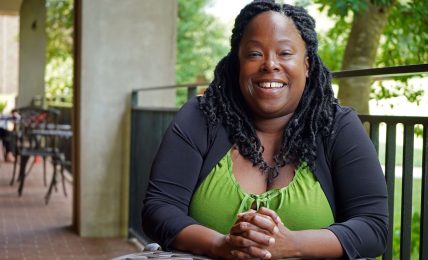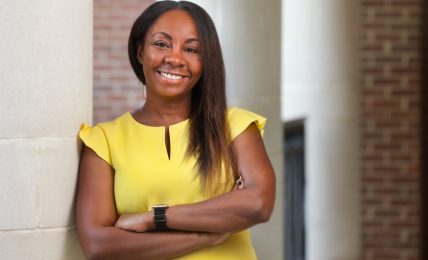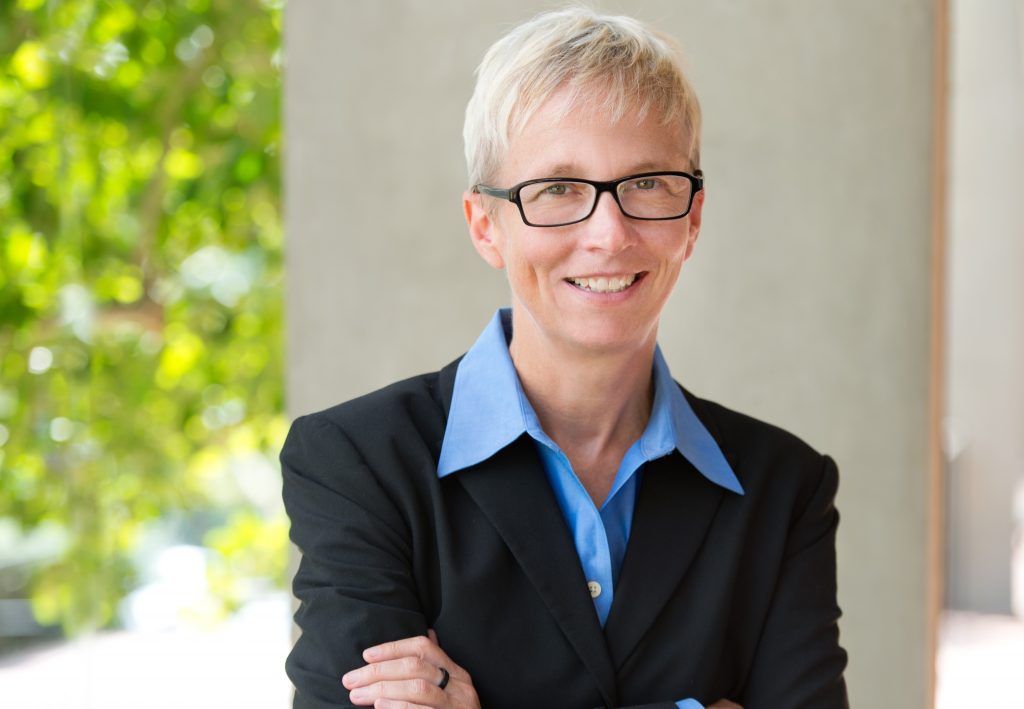
An innovative partnership between Carolina Law and the School of Social Work produces multi-disciplinary, holistically trained client advocates.
For Barbara Fedders, assistant professor of law and director of UNC School of Law’s Youth Justice Clinic, having students in the clinic have access to social workers in their legal advocacy on behalf of young people and adults convicted as minors is a dream come true.
“It is considered best practice in doing defense work to incorporate non-lawyers into the defense team where possible, appropriate, and when the client wants their services. These include social workers, clinical psychologists, community workers, just to name a few. Professionals in these areas can help lawyers with client communication, sentencing reports, and advocacy outside the contours of the legal case,” says Fedders. “My own experience as a defense attorney prior to moving to academia was in an office that had professionals from these three areas on staff, and I saw every day how I was able to get better results for my clients through collaboration with them.”
Although the Youth Justice Clinic has worked on an ad hoc basis with social workers over the years, a formalized partnership between the UNC School of Law and the UNC School of Social Work became a reality two years ago.
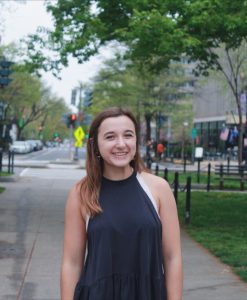
In August 2021, Hannah Camp, a dual degree student in the UNC School of Social Work and UNC Gillings School of Global Public Health, began her field placement at the Youth Justice Clinic.
“Our first-year field work is designed to give us well-rounded exposure to the different competencies of social work, and I don’t know a field placement that does that better than this one. I have experienced and done and witnessed and been challenged by so many things in such a short amount of time that have really helped me figure out what I want from and bring to the social work/criminal justice profession,” says Camp. “I would even love to see this partnership expanded beyond the Youth Justice Clinic, because there is so much power in the social work/lawyer partnership. Learning how to work with people in different professions and in this interdisciplinary field is not only really rewarding, but it also brings so much more advocacy and support to clients.”
For the clients of the Youth Justice Clinic, they must first consent to having a social work student involved. For some clients working with multiple points of contact is not the best way to building a lawyer-client relationship. According to Fedders, the field of social work has also been seen as intrusive in many low-income communities of color and for some clients, they have had negative experiences. For those reasons, the social work student doesn’t get involved in every case.
“Sometimes the social worker is mostly behind the scenes, researching resources for our clients, speaking with the professionals in other fields that the client is involved with, or just consulting with the law student,” says Fedders. “Other times, the social work student attends the client meetings as part of the defense team. Because the social work student is explicitly acting as part of the defense team — as an agent of the student attorney if you will – that student is bound by rules of confidentiality.”
For law students in the clinic, working with social workers provides a much more holistic approach to working with clients and allows them to propose alternative options that might not have come up without the social work perspective.
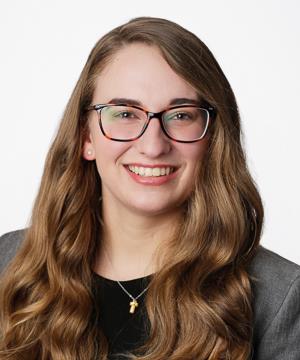
Meagan Watson, a second-year law student, has seen the advantages of having social workers involved with clients who are facing both juvenile court proceedings and school disciplinary action. Camp has provided guidance on strengthening the student attorney-client relationship that is so crucial to developing trust.
“Working with Hannah changed my approach to client representation. I now have a more holistic perspective of representation (beyond building strong legal arguments) and this has increased my effectiveness as a client advocate,” says Watson. “She has also supported the student attorneys in the clinic by ensuring that we recognize the emotional toll that can come with client-facing work. The clinic is one of the earliest opportunities we have to represent clients and Hannah makes sure we are doing self-check-ins. These check-ins ultimately make us more effective advocates.”
According to Fedders, almost all of the clinic’s clients have experienced poverty, housing instability, unmet learning needs, or other challenges including neglect and abuse.
“Hannah has really helped the law students help contextualize the client’s alleged crime or school misbehavior or criminal conviction within those adverse circumstances. She is also great about working with us on developing skills of empathy and self-care that can help the students do this work and imagine careers doing this work.”
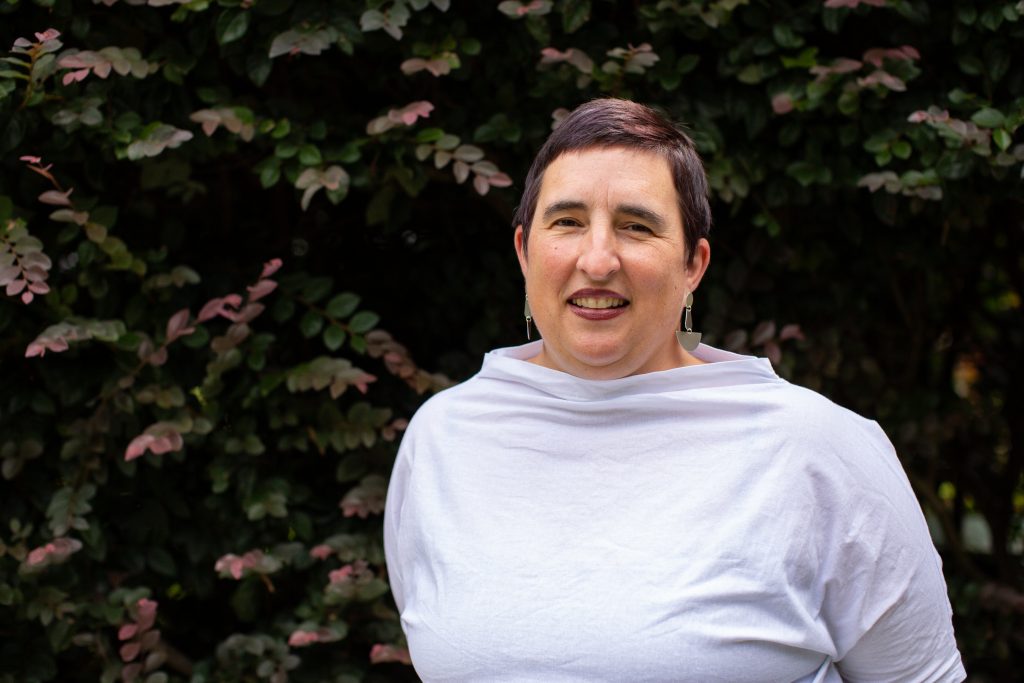
Allison De Marco, MSW, Ph.D. is an advanced research scientist at the Frank Porter Graham Child Development Institute and an adjunct faculty member at the School of Social Work. She also supervises the field placements of social work students. De Marco strongly believes that social workers being involved with the Youth Justice Clinic is very beneficial for the clients. “Social Work has a code of ethics that requires social workers to work for racial equity and social justice which helps to drive thinking together in teams about how to address impacts from systems that clients, both adults and youth, come into contact with, as well as to think about all levels of a person’s well-being and how to address those and also help think about what the best outcome is for clients and for their families,” says De Marco.
Her hope is that social work students placed in the Youth Justice Clinic will learn to work within systems, make changes, and to think deeply about how these systems and institutions impact and oppress families and communities. “I also hope they take away concrete ideas for policy change and action to better serve these communities,” says De Marco.
Both Watson and Camp agree that their work at the Youth Justice Clinic has positively impacted their educational experience.
For Watson, “The Youth Justice Clinic provided an invaluable experience that I will take with me into practice and the partnership with the School of Social Work will produce lawyers who are better able to serve their clients’ needs.”
For Camp, “It’s all been this huge and rewarding learning experience that’ll shape the rest of my life.”

